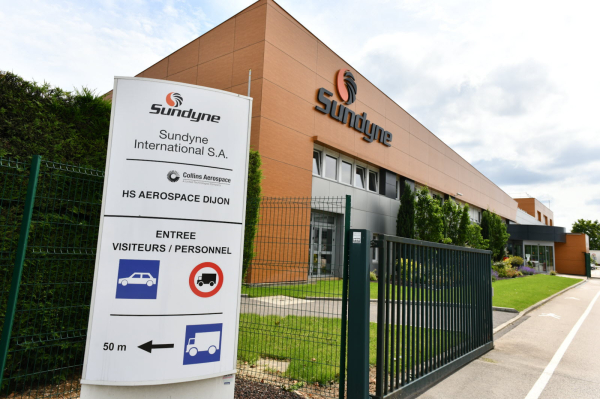
According to the National Academy of Medical Sciences, 80 percent of wounded Ukrainian soldiers receive care during the so-called 'golden hour' immediately after being injured (Photo: Julia Kochetova/Image Bank of War in Ukraine)
Although there’s disagreement on the number of Russians and Ukrainians who have lost their lives in Russia’s genocidal war against Ukraine, there’s general agreement that Ukrainian losses are about one third as many as Russian losses.
There are several possible reasons for this discrepancy.
The most obvious one is that Russia is losing the war, so it makes sense that more Russians will have died than Ukrainians. But the magnitude of Russian losses also has something to do with the way the war has been waged and the way wounded Russian and Ukrainian soldiers have been treated.
Most analysts would agree that Russian military commanders have done a terrible job leading their forces. Time and again, they’ve engaged in tactically pointless repeated frontal attacks that result in high casualties — and they’ve done this throughout the last year, testimony either to the generals’ inability to learn or to their fear of displeasing Vladimir Putin, who reputedly issues commands that often make little military sense.
The battle of Bakhmut, in which tens of thousands of Russians have lost their lives for a strategically unimportant collection of rubble, is a case in point: Putin wants it to be seized, regardless of the cost in lives, and the generals have no choice but to comply.
Moreover, Russian soldiers are poorly-motivated and equipped and, thus, presumably more vulnerable. Russians have also mostly been on the offensive during the war, and attacking troops usually lose more men than defenders.
In contrast, Ukrainian generals have done a great job, Ukrainian soldiers are highly motivated, and the Ukrainians are only now preparing for an offensive.
One reason that has gone under-reported is the way in which Russia and Ukraine treat their wounded. Ukrainian sources report that Russian soldiers have often abandoned their wounded comrades on the field of battle: it may be that Ukrainian fire was too intense, that their training was poor, or that they were too terrified or too callous to be concerned.
Obviously, the chances that such soldiers will survive diminish greatly if they remain untreated for an extended time.
Doctors, medical supplies, and field hospitals also appear to be inadequate, partly because of the poor organisation that plagues all too many Russian institutions, partly because of the scandalous lack of preparedness with which the Russians launched their invasion, and partly because the Russian armed forces have the disadvantage of fighting on a front far removed from most major urban centres.
The quality of Russian doctors may also leave something to be desired, if one eminent frontline practitioner, Yuri Yevich, is not entirely atypical.
According to colonel Roman Svitan, a Ukrainian ex-pilot held captive and tortured in 2014, during the first Russian invasion of Ukraine, Yevich assisted in torturing him in the notorious “Isolation” prison in the Donbas: “There was a doctor who kept me conscious, I call him ‘Doctor Mengele,’ he kept me conscious in the torture chamber, so that I wouldn’t die…” (In an instance of poetic justice, Yevich has just been accused by a Russian policeman of criticising the Russian army — an action punishable by law.)
Unlimited cannon fodder
Given Yevich’s behavioural inclinations, it’s no surprise that Russian political and military leaders appear to view their soldiers as an unlimited supply of cannon fodder that can be thrown at Ukrainian positions irrespective of cost. With a far smaller population, Ukraine cannot be as cavalier.
More important, Ukrainians have developed a highly effective system of dealing with their wounded.
According to the president of the National Academy of Medical Sciences, Vitaliy Tsymbalyuk, 80 percent of wounded soldiers receive care during the so-called “golden hour” immediately after being injured.
As a result, only 1.35 percent of soldiers die during the “evacuation phase,” which ultimately means that 82 percent can “return to service after treatment.”
Sign up for EUobserver’s daily newsletter
All the stories we publish, sent at 7.30 AM.
By signing up, you agree to our Terms of Use and Privacy Policy.
According to Tsymbalyuk, soldiers with heart wounds are transported to the medical institutions of the National Academy of Sciences in Kharkiv in six-eight hours, and to those in Kyiv in 12 hours. Since the war began, the Amosov Institute of Cardiovascular Surgery has treated 537 soldiers with pathologies of the heart and main vessels; over 420 with injuries to the heart and large vessels have been operated on at the Institute.
In addition, doctors at the Institute of Eye Diseases and Tissue Therapy saved the sight of 524 servicemen, while their colleagues at the Institute of Otolaryngology restored the hearing of 901 soldiers.
Tsymbalyuk attributes Ukraine’s medical successes to its adoption of “the Israeli principle, according to which all civilian hospitals become military hospitals during the war. Therefore, thanks to the unification of military and civilian health care efforts,” Ukraine has created “a single medical space” capable of functioning effectively and efficiently.
The war has compelled Ukraine’s hitherto largely unreformed medical profession to get its act together.
Faced with overwhelming challenges that require an immediate response, Ukrainian medical personnel are cutting through or ignoring red tape and doing their jobs without the excessive interference of bureaucrats. Although their commitment and expertise will be in high demand during the forthcoming Ukrainian counteroffensive — which promises to be especially bloody, their ability to deliver may partly account for Kyiv’s confidence that the counteroffensive will succeed.
Source: euobserver.com



